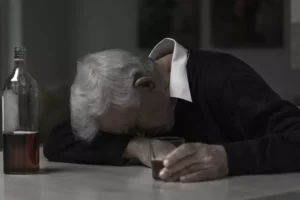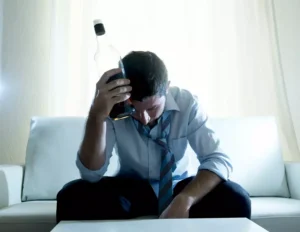
After the intervention, the recommended treatment option is inpatient care, in which treatment is provided in a residential setting. These in-house treatment centers typically require patients to live at the facility for a fixed period, typically between 30 and 90 days. A cold shower can help you physically reset if you are experiencing strong urges to relapse. It can help clear your mind and has many other great benefits beyond helping you deal with alcohol withdrawal. It may also help with hot flashes that can occur during alcohol withdrawal.
Medications
Not everyone will warm up to the idea of sharing the problem at support groups or similar help programs. “Many people don’t know that alcohol is a carcinogen,” said Pettigrew. “It’s important information that drinkers should have access to. But telling people alcohol causes cancer is just part of the solution – we also need to give them ways to take how to overcome alcoholism action to reduce their risk.” Your insurance plan may cover some or all of the cost of alcohol detox. Our online health insurance verification system will estimate your in-network and out-of-network deductibles, coinsurance percentages and out-of-pocket maximums. Within 5 minutes, you’ll receive an email with these details – free of charge.
Products & Services
It’s as if our smartphones, tablets, and computers have become extensions of our very being, whispering sweet nothings of endless entertainment and instant gratification. An alternative to inpatient treatment is outpatient treatment. This is usually recommended in cases that are not as severe or cases where the patient has strong responsibilities that cannot be halted for inpatient care. Whatever your dreams and aspirations in life are, focus on them since the new lifestyle will make you forget about alcohol. If your loved one doesn’t accept treatment, be prepared to follow through with the changes you presented. It also may be right to ask your loved one to seek support from a group such as Alcoholics Anonymous.
Educating Yourself on the Disease of Addiction

Addictions can cover up past trauma or underlying feelings of emptiness, sadness, or fear. Psychological therapies, as well as medications, can provide long-term relief for these problems, which addictions tend to worsen over time. Once you understand your triggers, you can put things in place to reduce the chance of relapsing again. You can then apply what you learned from the first time you quit or cut down to be more successful next time. You can also talk to a doctor about medications that can help you cope with the symptoms of withdrawal.
- A sober life doesn’t have to mean more time at home as you try to block out triggers.
- It’s best to avoid these people during and following withdrawal.
- Our online health insurance verification system will estimate your in-network and out-of-network deductibles, coinsurance percentages and out-of-pocket maximums.
- It’s important to have sober friends who will support your recovery.
The Neuroscience of Screen Addiction: What’s Happening in Our Brains?

Going outside and walking can do wonders if you are having a particularly rough time. You may not feel like being physically active or going outside, but a good walk can completely recharge your mental and emotional state. One factor to remember is that the discomfort of withdrawal is only temporary. This thought process can be a useful mental tool when the physical pain of withdrawal is most severe.

This may mean making major changes to your social life, such as finding new things to do with your old drinking buddies—or even giving up those friends and finding new ones. Once your loved one has identified their potential https://ecosoberhouse.com/ triggers, learning how to avoid them is an important part of relapse prevention. Talk with a healthcare professional if you’re concerned you may experience detox symptoms when quitting drinking or cutting back.
How to Stay Sober
- They serve as a non-judgmental hub for individuals to express their fears, accomplishments, and setbacks openly, fostering resilience and an optimistic outlook.
- “Many people don’t know that alcohol is a carcinogen,” said Pettigrew.
- The more specific, realistic, and clear your goals, the better.
- In the absence of triggers, or cues, cravings are on a pathway to extinction soon after quitting.
- The journey to overcoming alcoholism is long, and you need a helping hand to walk you step by step throughout the road to an alcohol-free life.
A small group of adolescents relapsed when facing interpersonal difficulties accompanied by negative emotions and social pressures to drink or use. Treatment and education can help adults learn techniques for handling urges and ways of accepting and managing negative emotions. Treatment and information aimed at adolescents can help them learn techniques for managing both positive and negative emotional states. Not only is addiction relapse common, relapse is not considered a sign of failure.
- One way or another, they learn and deploy a set of skills that help them get through the strong cravings and urges of the difficult early stages of recovery.
- It’s hard to leave addiction behind without constructing a desirable future.
- That is because the brain is plastic and changes in response to experience—the capacity that underlies all learning.
- Gillian Tietz is the host of the Sober Powered podcast and recently left her career as a biochemist to create Sober Powered Media, LLC.
- Our brains, bombarded with a never-ending stream of information and stimuli, adapt by becoming more adept at rapid task-switching but less capable of sustained focus.
- Write your drinking goal down and keep it where you will frequently see it, such as on your phone or taped to your refrigerator.
- Learn 18 ways to keep your mind occupied while facing alcohol withdrawal.
Group therapy, led by a therapist, can give you the benefits of therapy along with the support of other members.

Cravings for alcohol can be intense, particularly in the first six months after you quit drinking. Good alcohol treatment prepares you for these challenges, helping you develop new coping skills to deal with stressful situations, alcohol cravings, and social pressure to drink. While 12-step programs like Alcoholics Anonymous (AA) can benefit your loved one, Al-Anon meetings are great resources for you.

